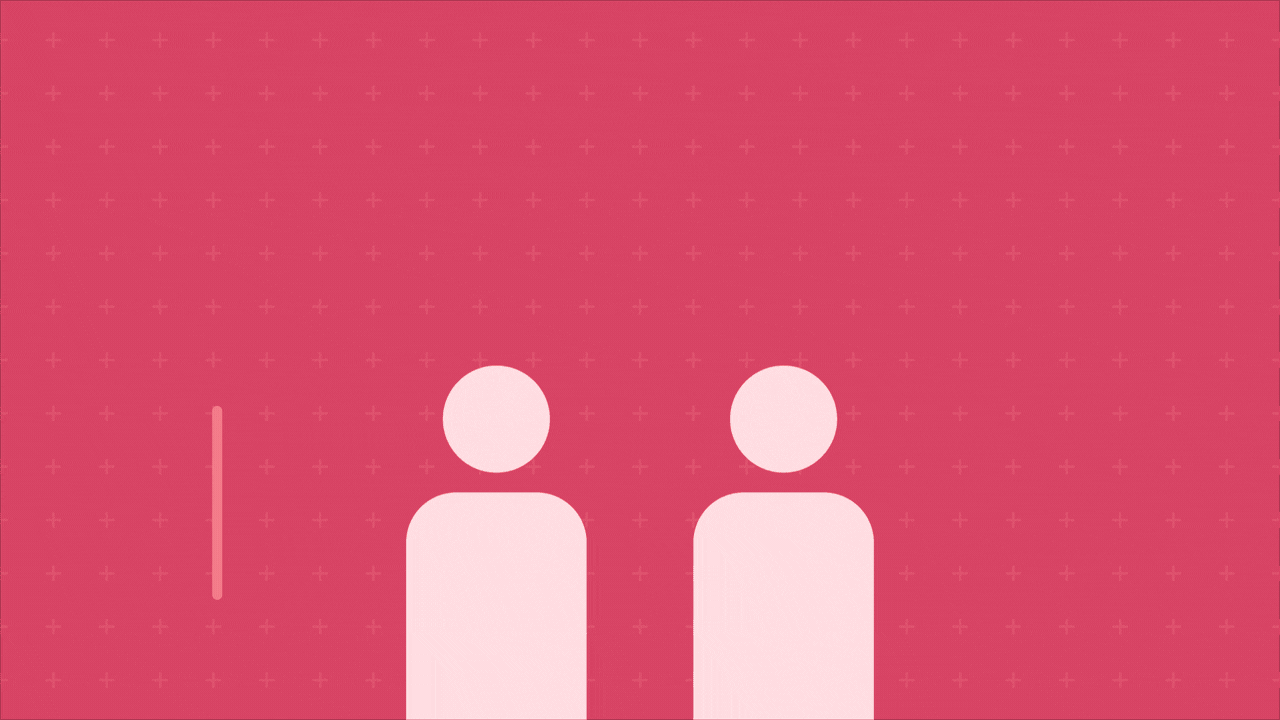By the time we meet with a client to discuss a new website, they’ve already endured enough soul-searching. But the questions they’ve spent months pondering aren’t the ones that interest us the most right off the bat.
Of course, further down the web development process, we’ll be happy to let the floodgates open and listen to all the website woes that a client has been experiencing. However, in the early stages of a client-agency relationship, we need to make sure that our team is a good fit with yours.
Picking out a web partner is like choosing a babysitter. At the bare minimum, you want to work with someone who can get the job done. But ultimately, you’re not hiring a set of qualifications–—you’re hiring a person. And the way you get along with that person will play a huge role in how successful the partnership is.
The same goes for hiring a web partner. Lots of agencies or freelancers can develop a website, but it’s important to find a partner that interacts well with your own internal team. The web development process is so huge and collaborative that we need to make sure that our team and your team are on the same page from step one.
These are the questions you should think about when considering a new web partner.
What are your expectations?
Before you even start looking for someone to build a website, you need to identify exactly what problems your new website needs to solve. This includes functional tasks, like eCommerce or online scheduling capabilities, as well as more abstract goals, like making your business appear more modern.
The good news is that setting expectations also sets the foundation for the entire web development process. The bad news is that it also requires a lot of legwork from the client.
We recommend looking at competitor websites and aspirational brand websites to get an idea of what other brands are doing in your industry. If every competitor website allows users to easily purchase products, then your website should probably do the same.
What’s your budget?
What you expect from your website will ultimately determine how much you should expect to spend on your website, which is why we suggest setting expectations before setting a budget. The problem is that many clients set their budget first without doing enough research about how much they should be willing to spend.
Any web project can be as comprehensive or as minimal as the client wants, and there are tons of factors that increase or decrease the total price of a web project. But no matter what your budget is, being transparent about it is critical.
By being transparent with your budget, we can use our experience to forecast the project and move more cumbersome items to later phases, which reduces cost in the short term.
But it’s also important to keep your budget somewhat flexible.
During our discovery and proposal process, we may identify a problem with your current website that we can fix, but it may make the project a little more expensive. While we never recommend features that you don’t need, we do take our job as digital solution-finders seriously, and we will always suggest ways to make your website better.
How will you measure success?
“Was it worth it?”
This is the biggest question a company will ask itself after building a new website. And the only way to know whether the process was worth it is by setting your target goals before you begin.
By the time we meet with a client, they usually already have a general idea of what they want to accomplish with a new website, which is great. However, like with any goal, it’s best to make website goals as specific and measurable as possible. This is where we can help clients the most.
For example, a client will say to us that one of the goals for their website is easier navigation. This is a great start and provides us with a clear idea of what issues they want to solve with their new site. The problem is that this goal is not easy to measure and it will be difficult to determine success at the end of the project.
We can match these abstract goals, like easier navigation or better-organized content, into measurable goals like bounce rate and average session duration, which help the client be more precise when analyzing their new site.
Being clear with your key success measures, no matter how abstract, will help us determine if we can be an effective web partner while helping you measure success down the road.
Do you have experience managing this type of project?
The process of building a new website is extremely collaborative. While there can be different degrees of client involvement, in order to keep all parties on the same page, there will be a minimum amount of back and forth required for approvals and project updates.
Some clients have a lot of experience with managing projects being carried out by an outside agency, while some clients don’t have as much. And while our work on a project won’t change based on your past experience, it’s helpful to know how familiar you are with the process before we begin.
Not only is it important for us to know how experienced a client is in managing large projects, but it’s also a good internal exercise for the client to consider what has worked well in the past and what they can improve in the future.
What barriers might we encounter?
This question might not have a firm answer, but it’s still good to start predicting roadblocks that we might encounter.
Anything from a complicated human resources API to rigid brand standards can cause hiccups during the design and development process and are good to identify early on.
It’s also possible that what a client considers a challenge actually has a pretty simple solution, so it’s good to quell those anxieties right off the bat.
Who has a say and who will make decisions?
This is one of the most important pieces of information that we like to know before embarking on a new project. Clients with a lot of stakeholders can slow down the process, or even cause it to stall completely, making it important for us and the client to identify decision-makers early.
We understand that building a new website is a pretty big deal and that a lot of people want to have a say in the process, but large teams often find it difficult to reach consensus.
Even the most complicated websites don’t require huge teams to make decisions. It’s important to be intentional about who you select to make decisions, and to give them a specific role in the approval process.
Our team has been burned before by a client introducing a new person late in the process who wants to make dramatic changes to work that has already been approved. Not only will this throw off the project timeline, but it also might force our team to exceed our projected hours, which will cost the client more money.
One Last Thing
Deciding to take the plunge and embark on a new website is a huge decision and one that should not be taken lightly. Hopefully, these questions can help provide a good start for teams considering a new website. If you have any other questions about the website development process, we’d love to chat.


